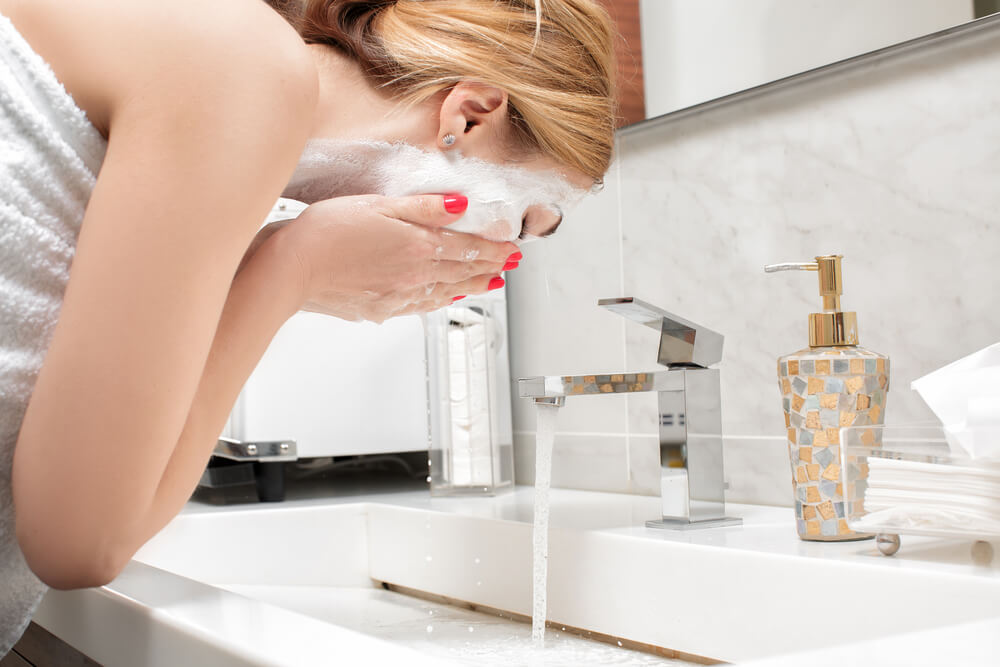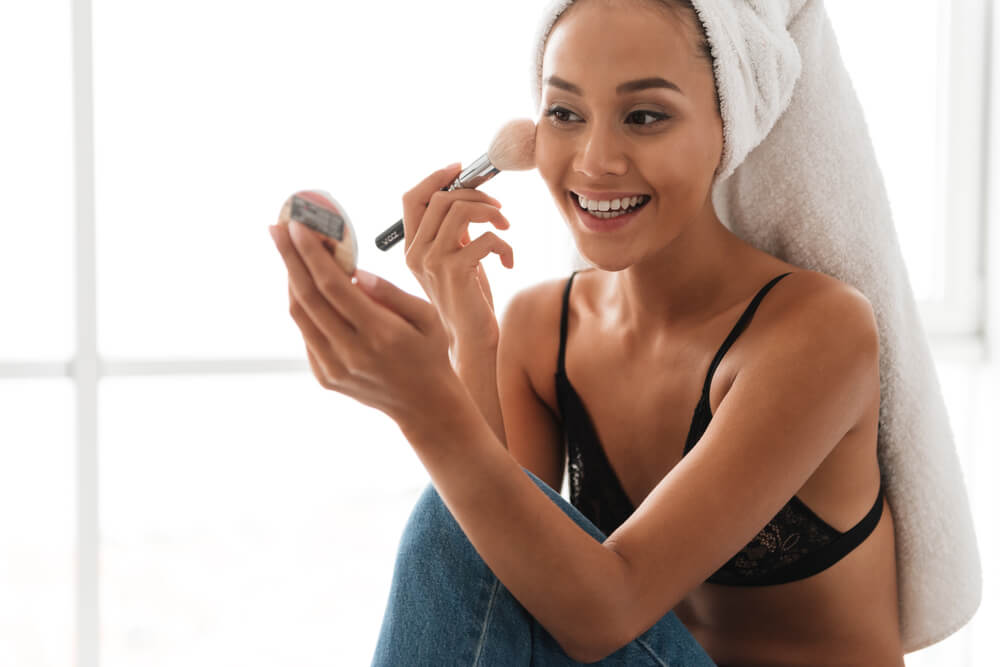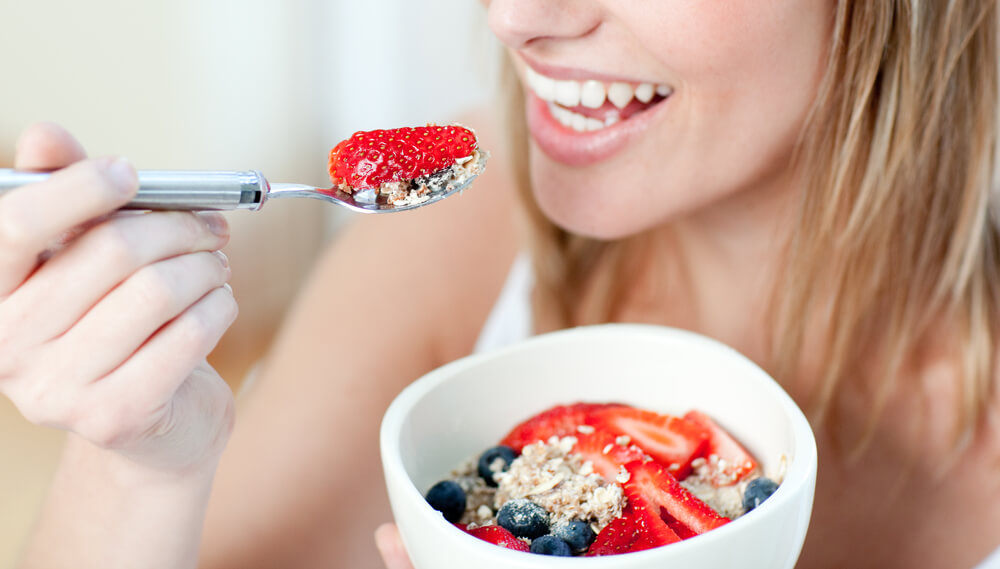Dealing with oily skin can be frustrating. It can sometimes seem as though no matter what you do, that shine never really disappears. Fortunately, it won’t always be this way – your skin type will change at different points in your life, meaning that it’s unlikely to be oily forever. However, in the meantime, here are 11 things that you should avoid doing, as they’ll only make your oily skin even worse.
Cleanse Too Often

Over-cleansing is one of the biggest mistakes made by people with oily skin. It’s easy to see why – cleansing gives you the chance to clear your face of excess oil, leaving you with skin that feels matte and dry, if only for a few minutes.
There’s no denying that cleansing is important. It’s even more so for those with oily skin. Failing to cleanse leads to all of that excess oil clogging up your pores, which then exacerbates oiliness and triggers breakouts.
As useful as cleansing may be, over-cleansing can be extremely problematic.
On the outermost layer of your skin sits a protective barrier made up of natural oils. This barrier is vital when it comes to the health of your skin for two main reasons:
- It prevents moisture from evaporating out of skin cells
- It protects the skin by blocking toxins and impurities from entering into skin cells
Cleansing too often damages this all-important protective barrier. This then causes your skin to lose moisture at a much faster rate. Although water is different from oil, your skin panics at this stage, producing extra oil to try to make up for the lack of water. This then leaves your skin feeling oilier than it was.
So, how often should you be cleansing oily skin?
No more than twice a day. However, the cleanser that you use will make a huge difference to this too, which brings us onto our next point…
Use an Overly Harsh Cleanser
You may think that you need a super-strong and powerful cleanser to tackle your skin’s excess oil, but this isn’t necessarily true.
Sure, if you’re only using your cleanser once a day, you could probably get away with a more potent formula. However, for those cleansing twice a day, a gentle cleanser is a must.
Don’t worry, gentle doesn’t always mean less effective. Look for a formula that combines cleansing agents with ingredients that hydrate and soothe the feel of the skin.
The Lavelier Biology Mousse Cleanser is a great example. Not only does this blend contain cleansing agents that have been proven to be effective, but it also contains botanical extracts, such as chamomile and calendula, that calm the feel of the skin, along with hydrating humectants, such as coral seaweed and glycerin.
Touch Your Face

Are you guilty of frequently touching your face throughout the day?
This is a habit that isn’t easy to break, often because you’ll do it without even realizing it.
However, think of everything that your hands come into contact with over the course of the day. The skin on your hands is loaded with germs, allergens, chemicals, pollutants, and other impurities – the last place you want all of this is on your face!
When all of those unwanted particles end up on your skin, they slowly work their way into your pores. This causes blockages, resulting in breakouts.
It doesn’t matter how often you may wash your hands – it’s still a good idea to avoid touching your face as much as possible.
Skip Out on the Moisturizer
Your skin already feels oily enough – you don’t need to be adding a moisturizer onto it too, right?
Wrong.
A moisturizer is all about moisture – ie. water. Oil is completely different. No matter how oily your skin may be, your skin cells still need water in order to properly function.
This makes a moisturizer essential.
However, the key is in picking a moisturizer that’s well-suited for your skin type.
If you’ve got oily skin, then you need a non-comedogenic moisturizer. This means that the moisturizer won’t contain any ingredients that will clog up your pores.
Make sure that you’re moisturizing every single day, even if your skin feels especially oily. A lack of water leaves your skin cells feeling dehydrated, which then encourages your sebaceous glands to produce more oil – definitely not what you need!
Neglect Oils
Applying oils to oily skin may seem like a disaster waiting to happen, but it all depends on the oil that you choose.
Not all oils will clog up your pores. In fact, some oils can actually trick the skin into cutting back on natural oil production, while others will help to unclog your pores and rebalance your skin’s oiliness.
Sounds good, right?
You probably want to know which oils are able to work such magic. Here are some of the best:
- Jojoba oil
- Argan oil
- Tea tree oil
- Green tea oil
- Marula oil
- Olive squalane
Either use these oils on their own, or look for non-comedogenic skin care products that have been formulated with some of those ingredients.
Wear Pore Clogging Makeup

The last thing that you want to do is clog up your pores. This makes the oiliness so much worse, while also leading to breakouts.
Unfortunately, many makeup products are guilty of doing this. Heavy-coverage foundations and long-wearing powders are some of the biggest culprits.
If you’ve noticed that your oiliness seems to get worse after you’ve been wearing makeup, then it is time to take a closer look at the makeup products you’re using.
Just like with skin care products, makeup products that don’t contain any pore-clogging ingredients will be labeled as non-comedogenic. These are the ones that you need to be using.
However, even then, try to stick to low-coverage formulas as much as possible. Save the high-coverage blends for small areas that need some extra help.
Use a Dirty Phone
Do you clean your phone on a daily basis?
Most people would say no to that. However, think about how many surfaces your phone comes into contact with each day. Think about how much bacteria your phone picks up, before imagining all of this moving onto your face each time you use your phone.
As you can imagine, all of those impurities make oily skin so much worse. They also clog up the pores and trigger breakouts, none of which you would have been dealing with if you had cleaned your phone.
Simply give your phone a wipe down with an antibacterial wipe a few times a day to keep it clean.
Forget to Apply a Sunscreen
Whether you genuinely forget or you purposely choose to avoid thinking about it, sunscreen is a product that you need to be using on your skin every day. Often, multiple times a day.
If you’re worried about sunscreen clogging up your pores, don’t be…
This is all down to the sunscreen that you choose.
Again, just like with your skin care and makeup products, look for non-comedogenic formulas. Gel blends tend to be lighter on the skin than creamy sunscreens, but make sure that the formula you pick is at least an SPF 30.
It’s a common myth that oily skin isn’t affected by the sun as badly as dry skin. However, not only does the sun cause exactly the same damage, no matter your skin type, but UV rays will also trigger inflammation in the skin. As you know, it doesn’t take long for this to lead to a breakout.
Even worse, the way in which the sun dehydrates the skin can cause your skin to produce excess oil to compensate, leaving your skin even oilier.
Eat a Poor Diet

Be honest with yourself – would you consider your diet to be healthy and balanced?
If your answer is no, then you’re really not doing your skin any favors.
Certain foods can actually stimulate your skin into producing more oil. As it so happens, these are the foods that aren’t so great for you anyway, such as:
- Processed carbohydrates, such as white bread and white rice – these cause a spike in your insulin levels, with insulin being a hormone that plays a big part in excess oil production
- Skimmed milk – biological changes during the skimming process, hormonal imbalances, and added whey proteins are all things that lead to skimmed milk contributing to oiliness
- Vegetable oils – these are high in omega-6 fatty acids, which can cause inflammation in the skin when there aren’t enough omega-3s to balance them out
- Overly salty foods and alcohol – both cause dehydration. As you know, dehydrated skin overcompensates by producing extra oil
- Sugar – increases oil production and causes inflammation in the skin
Don’t worry, it’s not all doom and gloom. On the other end of the scale, here are some foods that can actually help to tackle excess oil production:
- Nuts and oily fish – the omega-3 fatty acids in nuts and oily fish helps to counter excess oil production
- Citrus fruits – not only can the vitamin C have a balancing effect, but the detoxifying compounds in citrus fruits helps to clear excess oil from the skin
- Pulses – useful for balancing oil production, while also providing the body with amino acids that don’t break down into sugars, since sugar can increase oil production
- Dark chocolate – packed with potent antioxidants that help to rebalance the skin’s oil production, while keeping the skin healthy in so many other ways
Get Overly Stressed
Have you been feeling more stressed out than usual lately?
Many don’t realize that stress has a direct effect on your skin’s oil production.
How?
When your body is feeling stressed, it produces a hormone called cortisol. Not only does cortisol signal to your skin to produce more oil, but it also damages the protein fibers that hold your skin up, leaving you with fine lines, wrinkles and sagging skin far earlier in life.
What can you do about this?
Keeping stress levels down may initially seem easier said than done. However, once you find a de-stressing technique that actually works for you, you’ll be in full control over your stress levels. A few tricks to try the next time you find yourself feeling stressed are:
- Deep breathing exercises
- Writing your thoughts down
- Exercising
- Listening to some music
- Doing something that you enjoy
The more that you can prevent your body from producing cortisol, the less oily your skin will be.
There really are so many different stress reduction techniques out there. Each person will have success with something different, so try a variety out to identify which works best for you.
Sleep on a Dirty Pillowcase
How often do you wash your pillowcase?
The answer varies quite a bit, but, if you’ve got oily skin, then you really should be washing your pillowcase a few times a week.
Why?
Well, each night when you go to bed, all of that excess oil from your skin ends up rubbing off onto your pillowcase. The next night, all of the oil that’s already on your pillowcase gets transferred back onto your skin, where it dives deep into your pores and triggers a breakout.
Cleansing before bed helps, but the best way to start the day with fresher skin is by making sure that your pillowcase is always clean.
Say Goodbye to Oily Skin
Some of the tips mentioned above may seem pretty minor, but put them all together and you’ll notice huge transformations in the appearance of your skin. Not only will these tips help to reduce how much oil your skin naturally produces, but they’ll also benefit the look and feel of your skin in so many other ways.




1 comment on “11 Things You Should Never Do if You Have Oily Skin”